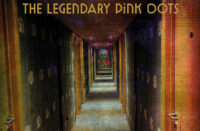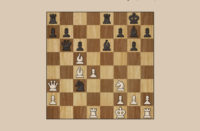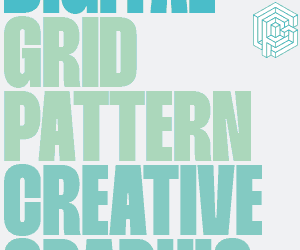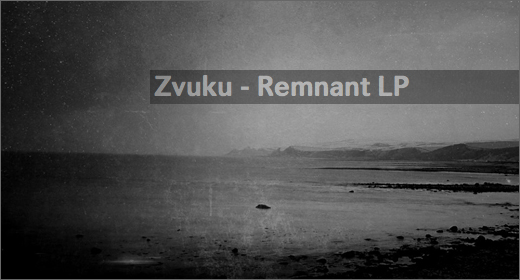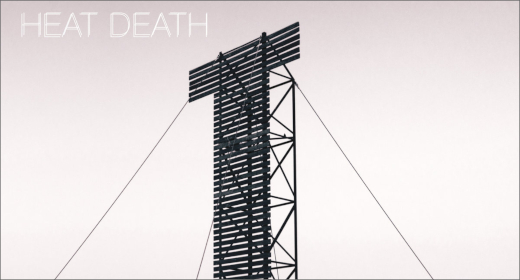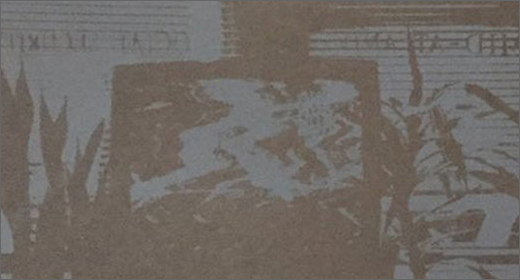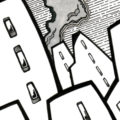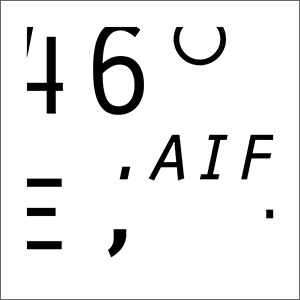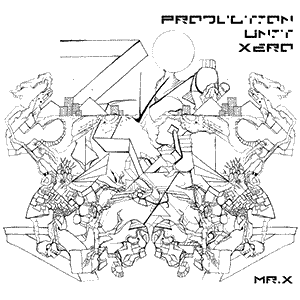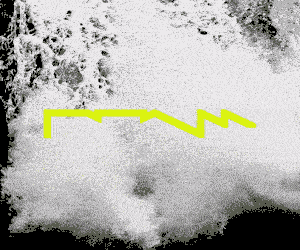Remnant has a coherence and variety to it that only comes through on listening and re-listening. It is a fuller, bigger and ultimately a more positive sound.
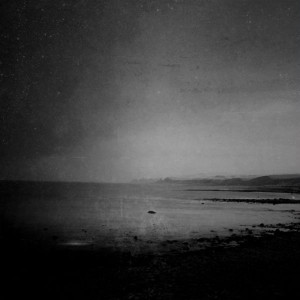 Remnant, the crowd-funded vinyl release of Karl McGrath (aka, Zvuku), is the artist’s first full length LP after releasing several distinctive CDrs with Rural Colours, Heat Death and Futuresequence. With Remnant, he has extended the range of his neo-classical drone toward a richer, fuller and more acoustic sound—a sound suitable for wider, deeper spaces.
Remnant, the crowd-funded vinyl release of Karl McGrath (aka, Zvuku), is the artist’s first full length LP after releasing several distinctive CDrs with Rural Colours, Heat Death and Futuresequence. With Remnant, he has extended the range of his neo-classical drone toward a richer, fuller and more acoustic sound—a sound suitable for wider, deeper spaces.
The LP begins with the slow and spiraling sounds of “Behind this Line,” which introduces and overlays several acoustic and string elements before bringing in the disjointed scrape of a violin that edges both toward and away from tune. Behind these sounds are deeper, repeating elements which give the impression of fading echoes. The track slowly reduces away and levels out to reveal a plaintive and melancholic piano whose careful notes occasionally slip together, as if the fingers are only languidly, softly pressing the keys.
“Hume,” in contrast, provides sharper and tinnier sounds, like harpsichord strings being plucked, while a buzzing ambient drone builds from the rear and into the foreground. Beneath this shorter track is a fuller violin, in contrast with that of “Behind this Line,” giving the sound a sense of movement and animation where the first was of stillness and quietude. A darker note is set with the closure of the track, as it gives way to a harsh and throaty electric roar. “Order” follows on its heels, which has a strained and more distributed sound, suggesting wind instrumentation. Underneath it all, as with its preceding tracks, is the sense of an orchestra warming up, passing through atonal disjointment toward an unexpected, albeit sudden and fleeting, harmony. But it works by lulling us toward harmony and then springing a sudden drop or change in the layering of the sounds.
“Coldsong” surprises with its wider, more breathless tone; a sense of a bigger, albeit less populated space. At the same time, it’s also more disjointed and less coherent than the other tracks on the album, introducing elements of each of them—wind, acoustic, and ambient drone. This again surprises when it slowly gives way to an emergent and peaceful lull of nylon strings. While the dark edge of the violin does not go away, there is a sense of meaningful interaction between these elements. “Sleep,” its successor, is easily the easiest and—as the name suggests—the most gracious track. The piano is not fragmented or tired, but forms a strong, though distantly heard, whole pattern, while the sharp violins have faded away. If “Coldsong” was the music of an sparse moor or wintry coastline, this is the music of an empty wooden house.
Finally, “Ten rooms” is something of a harmonization of the earlier elements—the acoustic, for the first time, leading against a more urgent, scratchy violin. The end of the track brings with it an acceleration, even a post-rock accumulation of sounds and layered static. For the first time the acoustic is joined by a distorted electric guitar. In its final moments these sounds—perhaps suggesting the “ten rooms” of its name—cohere into a vibrant wholeness, before closing with a final plucking of steel stings.
Remnant has a coherence and variety to it that only comes through on listening and re-listening. It is a fuller, bigger and ultimately a more positive sound than his earlier CDrs such as Slump, a sense that the LP works as a whole, and ultimately as a narrative, though it has its darkness and uncertainty. It is a fine first LP, setting a pretty high bar to clear for future work. But happily, Zvuku’s already releasing and working on a number of remixes which build on this, taking it in new and unexpected directions.
Remnant is available on Heat Death.







